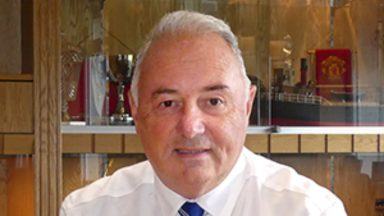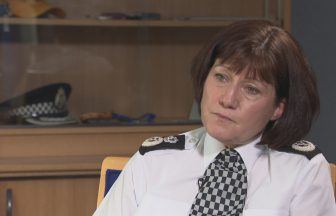A woman left unable to leave her house due to severe anxiety following a stroke has welcomed a charity’s urgent call for improved mental health care for other survivors.
The Stroke Association have called for health boards to make psychological care a priority in stroke rehabilitation after research found that 95% of survivors said it had an impact on their mental health.
Paula McGuire, from Glasgow, said her feelings of anxiety were at levels she had “never experienced before” following her stroke aged 40.
Ms McGuire was left unable to leave her house and couldn’t carry out everyday tasks such as shopping, driving and swimming.
“I can only describe it as overwhelming and felt completely lost and alone trying to unpick what was going on, asking myself whether it was my fault,” she said.
“I kept telling myself to try harder and face my challenges. I didn’t understand what was going on and it was very frightening.
“Fortunately, the nursing staff on the ward identified my low mood and anxiety early on and helped me to understand and process the changes I was facing.”
The charity interviewed around 139 stroke survivors in Scotland ahead of World Stroke Day on October 29 and found 73% did not feel they got the psychological support they needed in hospital.
Ms McGuire said that while doctors treated her physical issues, they did not take into account the levels of anxiety she was facing.
She added: “I was a wreck. I’d had a stroke at 40. How could anyone cope with that?
“People should have the same amount and standard of care for their emotional health as is given to those with physical challenges after stroke. It needs to be embedded into the system.”
The charity is now calling for their recommendations from the report to be included in the Scottish Government’s forthcoming Stroke Improvement Plan.
The charity is now calling for health boards to commit to delivering recommendations from the report and for the Scottish Government to provide support.
John Watson, associate director for the Stroke Association in Scotland, said: “The emotional consequences of stroke can be life-shattering – an overnight change to our emotions, personality and sense of self.
“These findings are further evidence of the desperate need for the system to address the psychological consequences of stroke.
“An adequate level of education and training must be given to staff to meet their responsibility and give them the skills in providing that care. This is critical to help people with emotional challenges after stroke to live well.”
Follow STV News on WhatsApp
Scan the QR code on your mobile device for all the latest news from around the country


 iStock
iStock























